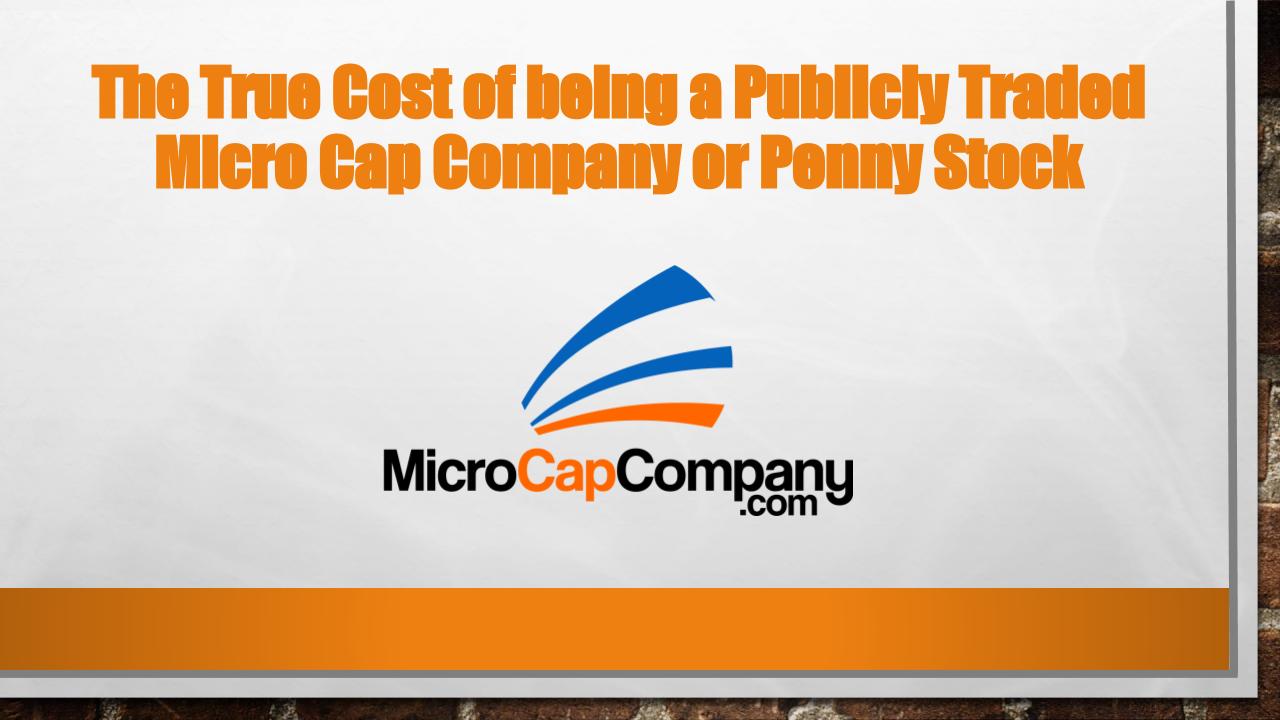The truth is that in the micro cap sector, this is rarely the case. If you are a start-up or a company looking for financing, you will probably run into a consultant that advises you to reverse merge or take your company public by listing over-the-counter on an exchange such as OTCMarkets. They may show you some success stories and proclaim that financing is easier to come by when you are listed publicly. Be wary….
The true cost of going public is one of countless expenses that a company should factor before taking the plunge. A quick search on the Internet will have you believe that you can list your company on a stock exchange (either in the USA or abroad) for $60,000-$100,000. This may be true, but this is just the start of an on-going expense list that CEOs and managers should be aware of before making the decision to take a company public, especially as a penny stock. The true cost of going public includes but is not limited to:
- Filing Fees with The Stock Exchange: Depending on where you list your company, the fees vary as well as the requirements. Over-The-Counter exchanges often have less nominal fees than the major stock exchanges such as NYSE or NASDAQ and often times (depending on what tier you list) will not have disclosure requirements.
- Professional Fees associated with an IPO or Reverse Merger: Lawyers, Accountants and “Consultants” are all part of the mix when going public. Normally an Attorney will have to file your paper work with the SEC and your company will need an audit from a professional accounting firm.
- Investor Relations Fees: A good IPO or Reverse Merger will need a strong Investor Relations teams to introduce the company to Investment Bankers, Broker Dealers and handle Press Releases and “Road Shows”. These companies can charge between $5,000-$15,000 per month and some of the best IR Firms want equity or stock options which can amount to in excess of 10% of your company.
………………………………………………..
About MicroCapCompany.COM: MicroCapCompany.COM (The Blog) is a blog focused on providing articles, news and information on the micro cap sector and start-ups. The Blog is a free service offered by Cervitude™ Investor Relations (a micro cap investor relations firm) and offers compensated research reports and business plan writing services for micro cap companies and penny stocks. If there is a particular topic you would like to see covered on The Blog, email CervitudeNetwork@gmail.com, If you would like to advertise on The Blog, click here.
